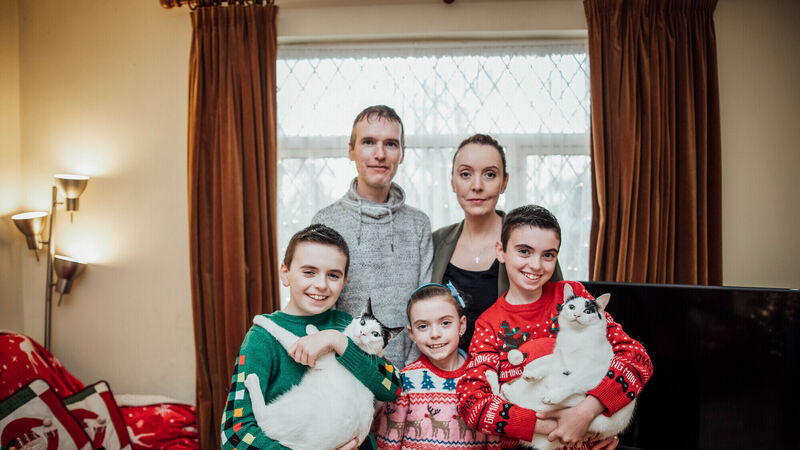'We have three little kids...I have to be the strong one,' says Family Carer of the Year

Colette O'Shea (back row, right) and her family Kieran (back row, left), (Front row, left to right) Luke, Caoimhe and Haydn at their home in Lisnagry, Limerick. Picture: Brian Arthur
Black-and-white photos of smiling 16-year-olds sitting on the bench where they first met and where they would get engaged years later are now precious links to a life changed utterly.
Colette O’Shea met her husband Kieran when they were teenagers, out in Limerick city one afternoon with friends. “Not many couples have photos of the first time they laid eyes on each other,” Kieran used to say.










